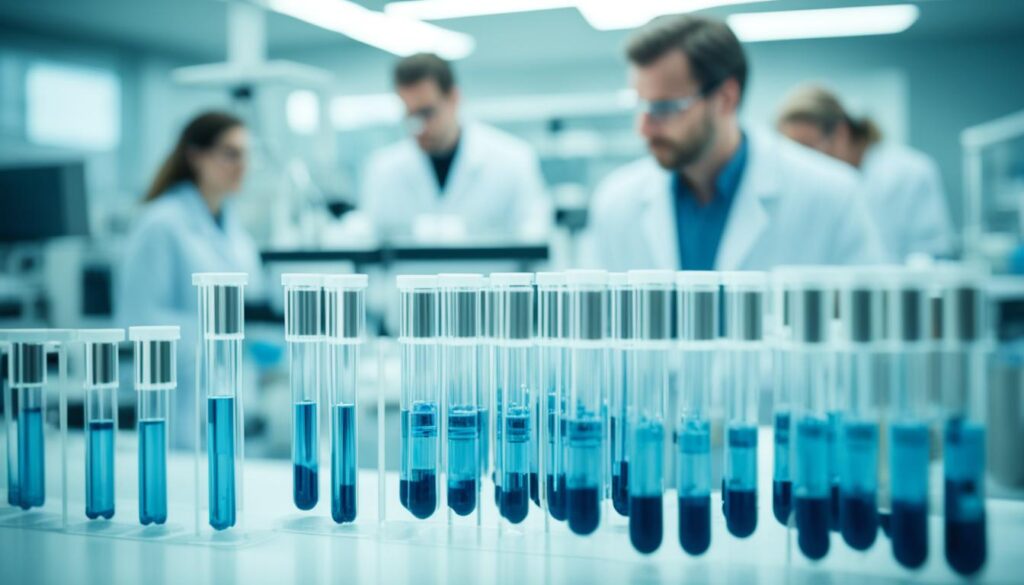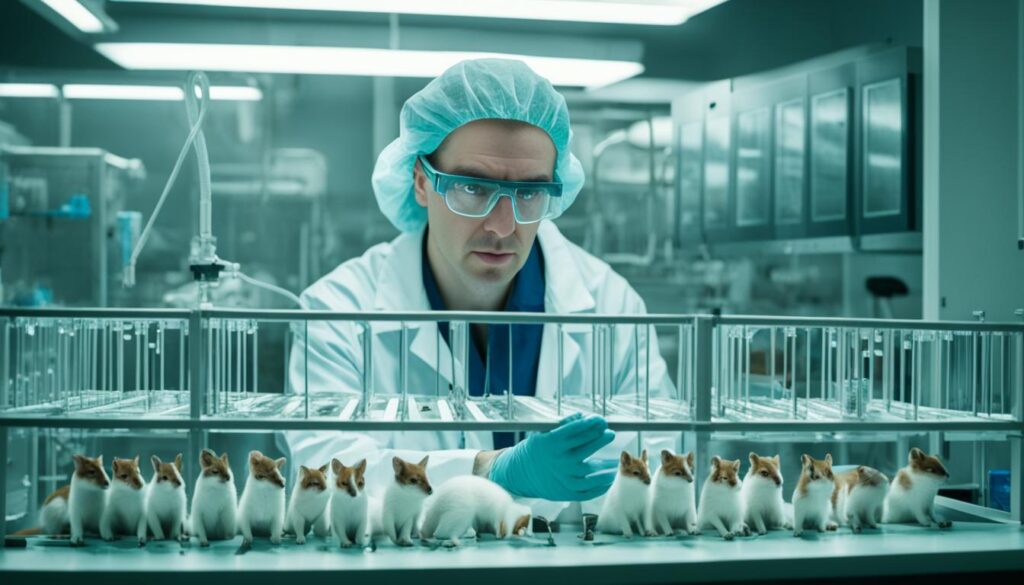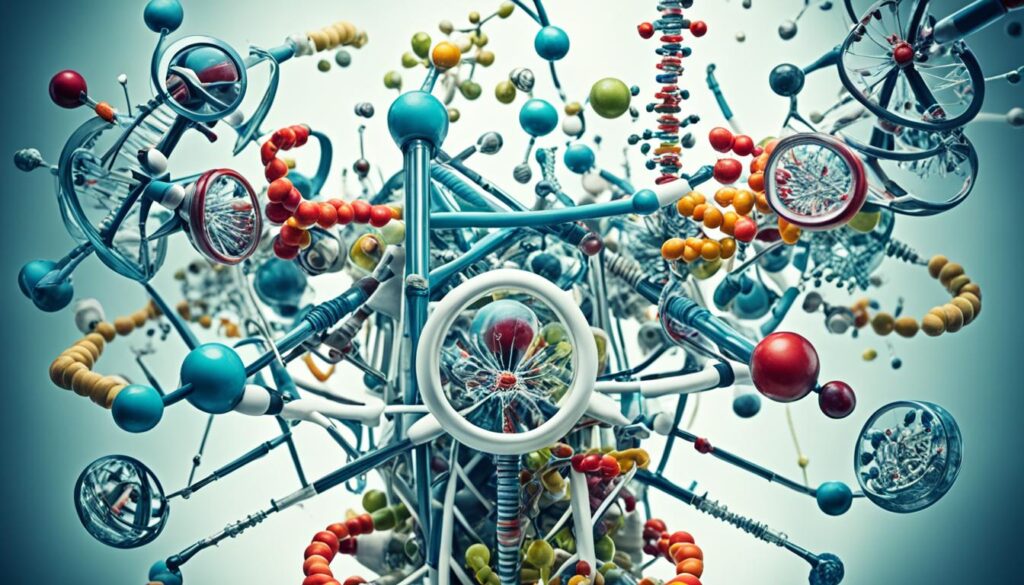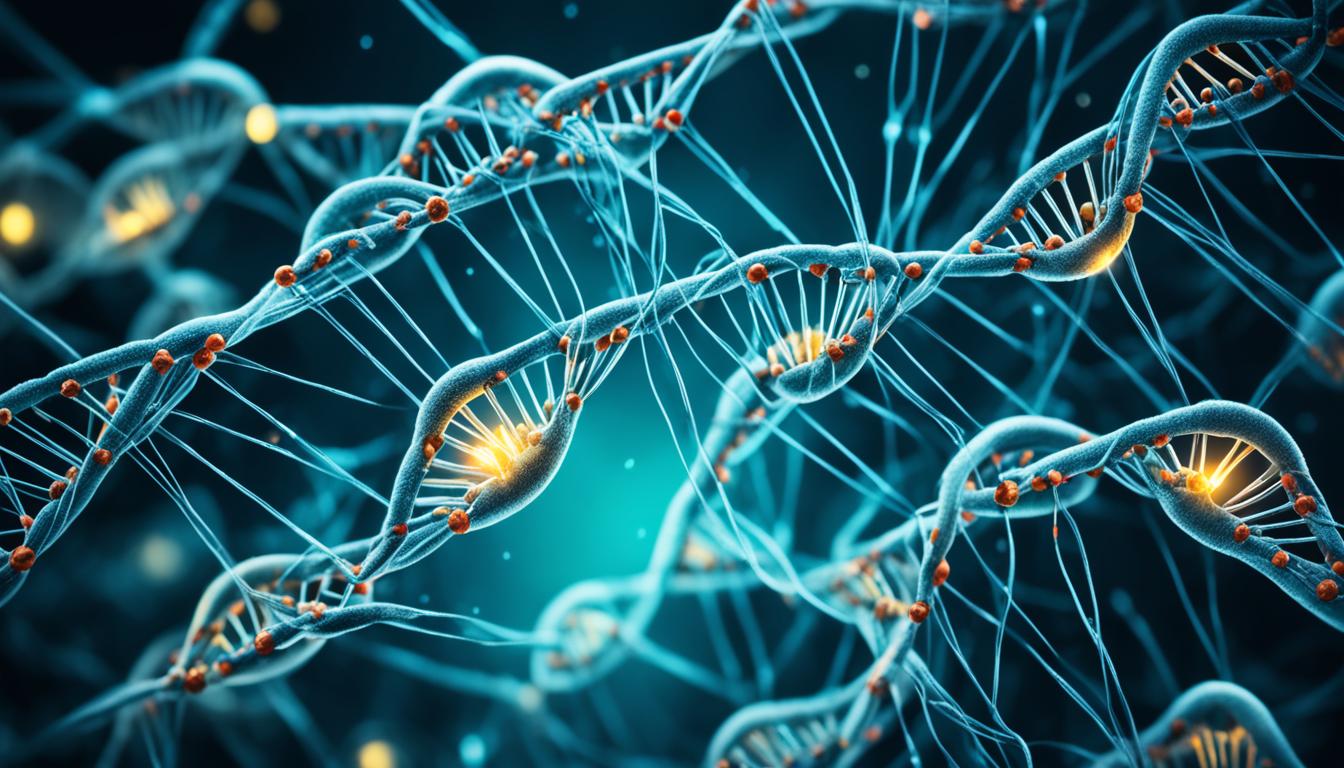Did you know that an initial search on the ethics of therapeutic human genome editing yielded a staggering 4,445 articles? After careful examination, only 27 of these were deemed relevant for further analysis. This extensive inquiry reveals a widespread public consensus on the ethically acceptable nature of therapeutic human genome editing, but the complexities surrounding Genetic Engineering Ethics invite deeper scrutiny. As the technology rapidly evolves, it raises significant ethical implications, not only for human modification but also for our treatment of animals in research and agriculture.
In pursuit of innovations like CRISPR-Cas9 technology, which allows unprecedented alterations of multiple DNA sequences, humanity stands at a crossroads. This powerful tool has shown promise in correcting defective genes, yet it opens a Pandora’s box of questions regarding the Ethical Implications of Genetic Modification. Notably, the success of initiatives like the Human Genome Project has propelled genetic testing to the forefront of medical science, prompting urgent discussions about consent, privacy, and the very essence of what it means to be human.
Key Takeaways
- The exploration of genetic engineering raises significant ethical questions that demand thorough consideration.
- Therapeutic human genome editing has gained global consensus on its acceptable usage, despite inherent ethical risks.
- CRISPR technology’s capabilities lead to complex dilemmas regarding consent and potential misuse.
- The rapid advancement in genetic testing underscores the need for strict ethical guidelines to protect individuals’ rights.
- Ongoing debates stem from differing cultural perspectives on human genetic modification.
Introduction to Genetic Engineering Ethics
Genetic Engineering Ethics plays a crucial role in guiding scientific advancements in genetic modification. As genetic engineers manipulate gene sequences in various organisms—including plants and animals—ethical principles shape the discourse surrounding these innovations. The core tenets of Genetic Engineering Ethics include respect for autonomy, non-maleficence, beneficence, and justice, which serve as a framework to navigate the complexities arising from these technologies.
With the rise of tools like CRISPR/Cas9, the applications of genetic engineering continue to expand. From creating pest-resistant crops to developing bacteria that generate fuels and plastics, the potential benefits are significant. Yet, these advancements raise ethical concerns in genetic engineering regarding the implications of manipulating life at such a fundamental level. Public surveys uncover a substantial apprehension about human applications, particularly with heritable genome editing.
The necessity for an inclusive dialogue among scientists, ethicists, and the general public cannot be overstated. Engaging diverse viewpoints allows for a more comprehensive understanding of the societal implications of genetic manipulation. Situations may arise where the potential for misuse must be addressed, highlighting the importance of ethical oversight in both research and implementation.

As genetic engineering progresses, it remains imperative to scrutinize practices through the lens of ethical considerations. Researchers are urged to adhere to guiding ethical standards, ensuring that the pursuit of innovation does not compromise safety or the welfare of future generations. Adopting such an approach will help navigate the ethical landscape, ultimately fostering a responsible environment for scientific exploration.
The Science Behind Genetic Engineering
The field of genetic engineering represents a significant breakthrough in biological sciences. At its core, it involves the manipulation of an organism’s genetic material to achieve desired traits. Techniques such as CRISPR gene editing have revolutionized the approach to diseases, enabling scientists to target genetic sequences with unparalleled precision. These advancements generate excitement and raise numerous ethical questions, encapsulated by the ethical dilemmas of genetic engineering.
One historic moment in this domain was during the Second International Summit on Human Genome Editing held in Hong Kong. Here, researcher He Jiankui controversially claimed the gene editing of two human embryos, igniting heated discussions on the implications of such actions. The distinction between germline and somatic gene editing becomes paramount in these discussions. Germline editing affects all cells and can be passed to future generations, while somatic gene therapies impact only the treated individual.
In response to the rapid developments in this field, many nations, including the United States, have instituted strict policies and regulations against germline genome editing. Notable figures, such as Feng Zhang from the Broad Institute of Harvard and MIT, have called for a moratorium on the implantation of edited embryos in humans. This announcement marked a pivotal moment for the ethics surrounding heritable gene therapies. Ethical concerns often arise about where to draw the line between effectively treating diseases and enhancing human capabilities.
Richard Hamermesh emphasizes the transformative potential of genetic engineering technologies within precision medicine. The commercial promise of these innovations could drive extensive research forward, creating an ever-expanding landscape of possibilities. Following this perspective, Dean George Q. Daley advocates for developing a clinical path for translating gene editing into practice while highlighting the importance of ethical considerations in these advancements.
Establishing international standards of professional conduct remains critical for preventing ethical violations in genetic engineering projects. Beyond health, this technology finds extensive application in agriculture, primarily through the development of genetically modified (GM) crops. These modifications not only enhance crop yields but also improve nutritional value and facilitate selective breeding of livestock.
While gene therapy is often viewed as morally acceptable due to its promise of curing diseases, caution remains. Tragic incidents in clinical trials have raised questions about the long-term effects of such treatments. Gene therapy carries risks, including the possibility of delivering genes to unintended cells, leading to unpredictable outcomes. Furthermore, concerns emerge that genetic engineering could foster discrimination against individuals with disabilities, as advancements may push societal norms toward genetic standardization.

| Category | Description | Significance |
|---|---|---|
| CRISPR Technology | Enables precise editing of DNA sequences. | Advances disease treatment and genetic research. |
| Germline Editing | Affects all cells and can be passed to future generations. | Raises significant ethical and regulatory concerns. |
| Somatic Gene Therapies | Targets only the patient; not inheritable. | Considered safer and more ethically acceptable. |
| Ethical Considerations | Includes debates on enhancement versus therapy. | Impact societal views on genetic engineering. |
| International Standards | Efforts to ensure ethical practices in genetic experiments. | Protects against ethical violations in research. |
Understanding Genetic Engineering Techniques
Genetic engineering encompasses several methodologies aimed at modifying the genetic makeup of organisms. One of the primary techniques used is transgenesis, which involves the transfer of genetic material from one organism to another. This technique has proven essential in the development of genetically modified crops, enabling the enhancement of yield and resistance to pests.
The term “genetically engineered” covers a broad spectrum, including animals that have undergone intentional alterations in their nuclear or mitochondrial DNA. Applications extend to various sectors, including agriculture and medicine. For instance, genetically modified (GM) crops introduced in the 1990s resulted in significant agricultural advancements, with crops like soybeans, corn, and canola leading the charge. Resistance to insects through genes sourced from Bacillus thuringiensis (Bt) has offered farmers a safer alternative to chemical pesticides.

Cloning represents another vital genetic engineering technique, consisting of three main types: DNA cloning, therapeutic cloning, and reproductive cloning. Concerns tied to reproductive cloning often arise from ethical discussions surrounding the implications of such procedures. Ethical challenges of genetic modification are prominent, particularly involving animal welfare guidelines. Selecting the appropriate number of animals for experiments and preventing invasiveness are critical concerns.
Applications of genetic engineering techniques can be seen across various fields. In the companion animal sector, products like GloFish exemplify successful genetic modifications. On the farm, advancements include developing disease-resistant animals, which aim to enhance food quality while promoting environmental sustainability. The commercialization of genetically engineered animals, such as the controversial AquAdvantage™ Atlantic salmon, faces public scrutiny, emphasizing the need to navigate the complexities of ethical challenges effectively.
Innovations such as the Enviropig™ aim to address agricultural pollution, showcasing the dual potential of genetic engineering for environmental sustainability and economic benefits. While therapeutic proteins derived from genetically engineered animals, such as ATryn® for treating hereditary antithrombin deficiency, are successfully utilized in medicine, the ongoing dialogue surrounding the social implications of such technology remains critical.
The global conversation continues to evolve around balancing the promise of genetic engineering with the ethical challenges of genetic modification. Navigating risks while promoting understanding of the long-term effects and ecological balance will pave the way for future advancements in this intriguing field.
The Ethical Dilemmas of Genetic Engineering
Genetic engineering prompts profound transformations in science and society. As technology advances, the debate around its Ethical Implications of Genetic Modification intensifies. This discourse not only navigates the technicalities of altering genetic materials but also grapples with significant moral issues in genetic engineering.
Exploring Moral Issues in Genetic Engineering
At the heart of genetic engineering lies a tension between scientific innovation and ethical responsibility. Stakeholders must consider the implications of altering living organisms. While certain modifications, like the creation of “golden rice,” represent advancements beneficial to public health, they sometimes spark concerns over the potential for unintended consequences. These ramifications could affect ecosystems and disrupt existing natural balances.
Risks associated with genetic engineering include:
- Environmental impact due to genetically modified organisms potentially crossbreeding with wild species.
- Animal welfare concerns arising from genetic modifications that could lead to suffering or health issues.
- Societal implications, as the creation of designer babies raises fears of deepening social inequalities.
Some argue for the necessity of genetic technologies, particularly in conservation efforts. By utilizing engineered gene drives to target invasive species, there is hope for ecological restoration. Yet, such innovations include risks that require careful assessment and a well-outlined ethical framework. Public engagement remains crucial. Transparency in discussing these moral issues in genetic engineering promotes informed decision-making, encouraging a collaborative approach among scientists, ethicists, and the public.

Successful interventions in healthcare and agriculture have demonstrated the potential benefits of genetic engineering. Engineered treatments for cancer and modification of crops to enhance nutrition embody positive applications. Nevertheless, these advances highlight the necessity for stringent regulations and safety measures that prevent genetic discrimination and ensure equitable access to technologies. Continued discussions involving all stakeholders can help navigate the complex ethical landscape surrounding genetic modification.
Animal Welfare and Genetic Engineering
Controversies surrounding genetically engineered animals continue to spark considerable debate. As genetic engineering technology advances, it prompts significant discussions about the ethical implications associated with animal welfare. The long history of biotechnology, including selective breeding, has evolved to a point where modern techniques allow for the creation of animals with specific traits, raising questions about their treatment and rights. Critics highlight various issues, including the wellbeing of engineered animals and the motivations driving their modification.
Controversies Surrounding Genetically Engineered Animals
The intersection of Animal Welfare and Genetic Engineering emphasizes the urgent need for careful consideration and oversight. While advancements have been made in enhancing disease resistance and improving growth performance, troubling trends have emerged, particularly within livestock. For example, contemporary pigs have been genetically modified to grow at accelerated rates, often leading to discomfort caused by their hearts struggling to keep up. Similarly, broiler chickens experience rapid growth that may hinder their ability to walk properly.
Profitability remains a significant motivator for both selective breeding and genetic engineering. This focus raises ethical concerns regarding the welfare of the animals involved. Author Bernard Rollin advocates for a fundamental ethical principle to regulate these practices, aiming to safeguard against causing harm to animals in the pursuit of profit. Furthermore, as discussions on creating genetically engineered mammals lacking sentience for experimental purposes gain traction, they illustrate the complex dilemmas present in the field of genetic engineering.
Transgenic animals, or those modified to express foreign genes, are patentable under both U.S. and European law, adding another layer of complexity to the genetic engineering controversies. These animals can be designed for various purposes, such as disease resistance and increased reproductive traits, posing significant questions about their rights and the ethical considerations of their creation.
The implications for Animal Welfare extend beyond livestock. Genetic engineering’s ability to produce animals devoid of pain or pleasure could dramatically alter the landscape of animal rights movements. Such developments may facilitate biomedical research by generating animals that express desired traits, leading to advances in medical therapies, including the production of human proteins in animal milk. These advancements promise benefits for patients but also demand a critical examination of welfare concerns.
In addition to these topics, genetic engineering plays a role in biodiversity preservation. Techniques like cloning endangered species demonstrate its potential contributions. Looking forward, the concept of animalless meat production offers sustainable alternatives to traditional livestock practices, exemplifying how innovation in animal genetic engineering can foster progress while also eliciting ethical quandaries.
| Concerns | Modern Practices | Ethical Considerations |
|---|---|---|
| Pigs with rapid growth rates | Genetic modification for improved performance | Animal discomfort and welfare |
| Broiler chickens’ leg issues | Selective breeding for market demands | Long-term implications for health |
| Transgenic animals | Creating desirable traits in livestock | Patenting and moral rights |
| Cloning endangered species | Support for biodiversity | Natural vs. engineered populations |
| Animalless meat | Redefining livestock production | Environmental and ethical impact |

Implications for Human Genetic Engineering
The evolving field of human genetic engineering raises significant conversations regarding its ethical implications, particularly concerning designer babies. This term refers to the potential to modify the genetic traits of embryos, aiming to enhance desirable features or eliminate hereditary diseases. The progress in genetic technologies over the past few decades has intensified debates regarding its ethical and societal ramifications.

Designer Babies: Ethical Considerations
The concept of designer babies encapsulates the promise of using advanced techniques, like CRISPR/Cas9, to create genetically modified humans. While the potential benefits include reducing the incidence of genetic disorders, profound ethical questions arise. For instance, the implications for human genetic engineering involve concerns over social inequality, as access to such technologies may be limited to wealthier individuals, further exacerbating existing disparities.
- Consent: Future generations may lack a voice in decisions made about their genetic makeup.
- Long-term impacts: The full effects of genetic alterations on future generations remain unknown.
- Value and priorities: Selecting traits in embryos prompts scrutiny over societal values and healthcare priorities.
Such considerations reflect broader moral dilemmas faced in the medical community, igniting discussions about how society values human life and the ethical responsibilities associated with such powerful biotechnologies.
Bioethics of Genetic Engineering in Agriculture
The Bioethics of Genetic Engineering extends into various domains, including agriculture. With the rise of genetically modified organisms (GMOs), ethical concerns in genetic engineering have emerged, reflecting a mosaic of viewpoints among consumers, farmers, and scientists.
Many ethical discussions focus on food safety, particularly regarding how regulatory bodies oversee GMOs. Conflicts arise between consumer choices and the decisions made by these agencies. One noteworthy aspect includes the potential moral status attributed to animals. The implications of genetic engineering on livestock welfare cannot be overlooked as this technology continues to advance.
Religious beliefs also influence perspectives on agricultural biotechnology. Certain faiths, including the Roman Catholic Church and Islam, raise ethical objections against genetic modifications, especially those involving transgenic processes. For example, a fatwa in Malaysia asserts that GM foods derived from pigs are forbidden for Muslims, showcasing how cultural traditions shape perceptions of acceptability in genetic engineering.
Environmental ethics remains a significant area of concern. Critics point to the potential risks posed to wildlife and ecosystems as a direct result of biotechnological practices in agriculture. This ongoing dialogue encourages a cautious approach to innovations, often referred to as the Precautionary Principle, which advocates for careful evaluation before implementing new technologies.
The economic implications of genetic engineering also spark ethical debates. Many argue that biotechnology may disproportionately benefit well-capitalized firms, limiting options for smaller farmers and resulting in imbalances in the agricultural landscape. Such discussions highlight the need for a balanced distribution of benefits to ensure the sustainability of rural communities.

To address these ethical concerns, some organizations advocate for enhanced transparency through methods like labeling bioengineered products. This initiative aims to empower consumers, giving them choice and respecting their religious and emotional objections to genetic modification.
The need for structured dialogue surrounding ethical questions in agricultural biotechnology has been emphasized repeatedly. As the landscape of agriculture evolves, integrating ethical considerations into policy-making becomes necessary to ensure that advancements in biotechnology are aligned with societal values and sustainability.
| Ethical Concern | Description |
|---|---|
| Food Safety | Regulatory oversight vs. consumer choice regarding GMOs. |
| Animal Welfare | Impact of genetic engineering on livestock health and treatment. |
| Religious Perspectives | Objections based on faith traditions influencing biotechnology acceptance. |
| Environmental Ethics | Risks posed to ecosystems and wildlife from agricultural biotechnology. |
| Economic Distribution | Potential favoritism towards larger firms affecting small farmers. |
| Precautionary Principle | A cautious approach to biotechnological innovations. |
The Potential Impact on Society
The rise of genetic engineering has sparked nationwide conversations regarding its ethical implications, especially concerning social inequality and access to genetic technologies. As advancements in these technologies continue, they could potentially reshape various aspects of society, prompting a closer examination of how such progress might create disparities among different socioeconomic groups.
Social Inequality and Access to Genetic Technologies
Access to genetic technologies often remains unevenly distributed, heavily influenced by socioeconomic status. Individuals with higher income may afford cutting-edge treatments and modifications unavailable to lower-income populations, further widening the gap of social inequality. These disparities raise significant questions about health care, education, and social mobility, intertwining them with the moral dilemmas brought forth by these advancements. The Potential Impact on Society may hinge on how these technologies spread access equitably.

- Privacy concerns and discrimination
- Risks associated with the misuse of technology
- Moreover, the lack of regulatory supervision in developing genetic technologies could amplify these concerns.
The potential for gene manipulation in humans raises several ethical dilemmas, such as:
- The evaluation of consequences for individuals undergoing genetic changes.
- Negative effects that may arise for future offspring.
- Societal oversight regarding the use of these technologies.
In agriculture, ethical considerations such as honesty, social responsibility, and intellectual rights recognition play critical roles in determining appropriate practices. The necessity for these discussions becomes increasingly evident, considering that in the United States, there are currently no FDA-approved gene editing treatments available for market use, limiting the accessibility of these advancements across different communities.
As society continues to grapple with the ramifications of genetics, the promise of equity hinges on proactive engagement with these issues, aiming to ensure all individuals can benefit from innovations in genetic technologies, regardless of their socioeconomic background.
Religious and Cultural Perspectives on Genetic Engineering
Different religious and cultural beliefs shape the dialogues around genetic engineering and inform public opinion. Faith groups often express distinct ethical objections grounded in moral and philosophical principles. These religious perspectives extend to various aspects of genetic technology, influencing regulatory policies and research priorities.
Numerous cultures approach genetic engineering with caution. The cultural views on genetic engineering highlight a spectrum of acceptance and concerns across regions. For instance, Jewish perspectives have embraced advancements in genetic medicine, understanding its potential while acknowledging past atrocities linked to genetic manipulation. Conversely, Islamic teachings tend to respect the sanctity of early life, promoting careful consideration of the ethics surrounding stem cell research and genetic manipulation.
Views from Buddhist traditions reflect a more optimistic stance. They perceive genetic engineering as a tool for alleviating human suffering, aligning with the ethos of promoting well-being. The complexity of these perspectives underlines the importance of inclusive discussions that honor diverse beliefs.

Engagement between scientific communities and religious groups fosters understanding and potential collaboration. The discourse surrounding genetic technologies requires ongoing reflection, particularly as advancements challenge traditional frameworks. As developments unfold, maintaining a balance between innovation and ethical considerations remains a crucial endeavor, inviting continuous dialogue among stakeholders.
Conclusion
The exploration of the ethical dilemmas of genetic engineering reveals the necessity for a comprehensive and inclusive approach to Genetic Engineering Ethics. As countries like the United Kingdom advance legislation—such as the Genetic Technology (Precision Breeding) Act 2023—allowing gene-editing technologies in agriculture, it becomes increasingly important to consider the broader implications of these scientific advancements on society at large. The transparent dialogue among bioethicists, scientists, policymakers, and the public is a crucial element in shaping regulations that resonate with ethical standards and social values.
Gene-editing presents both remarkable opportunities and serious concerns. The voices of prominent figures like Michael Sandel and Lee M. Silver remind us that while the potential benefits in healthcare and agriculture are promising, responsible implementation must remain at the forefront of discussions surrounding genetic modifications. Each innovative application of genome editing, particularly in fields such as assisted reproduction, requires a careful balance between scientific ambition and ethical constraints.
Ultimately, the ethical dilemmas of genetic engineering extend beyond just the lab; they touch upon cultural, societal, and individual rights. As society navigates these complex issues, it becomes evident that ethical guidelines and regulatory frameworks must evolve to meet not only the scientific advancements but the moral considerations they invoke. It is essential for stakeholders to engage in continuous reflection and dialogue, ensuring that everyone involved can voice their thoughts as we tread through these uncharted territories together. As we grapple with the ethical considerations of genetic engineering, we must also confront the potential consequences of unchecked scientific endeavors. The phrase ‘environmental catastrophe truth‘ serves as a stark reminder that our actions in the realm of genetic engineering can have far-reaching and irreversible impacts on our planet and its ecosystems. It is imperative that we approach these ethical dilemmas with a sense of responsibility and mindfulness, recognizing the weight of our actions on future generations and the world at large.










